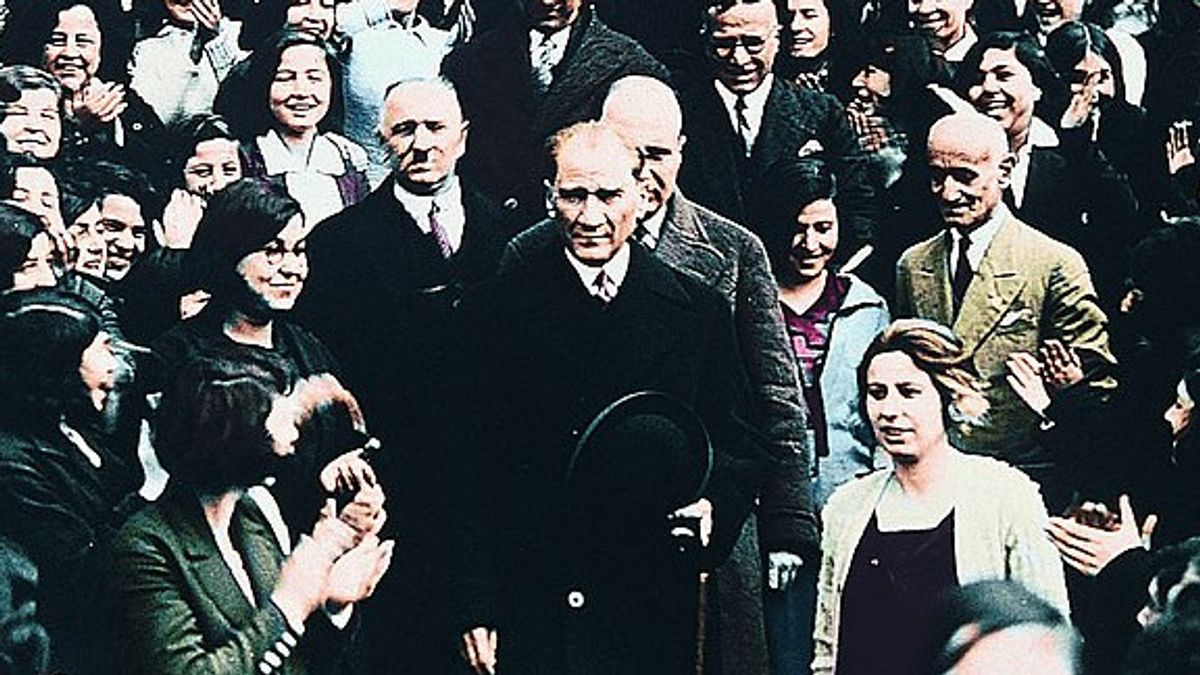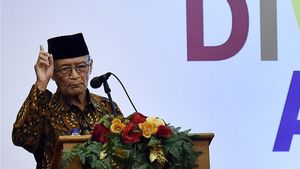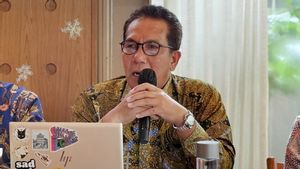JAKARTA - Mustafa Kemal Ataturk, as his last name means, "Father of the Turks" became one of the most talked about figures in the world in his time. His thoughts and movements to liberate the Turks from Western colonialism inspired many nations in the world. Indonesia's founding fathers are no exception.
Apart from being the Founding Father of the Turkish Nation, Ataturk is also known for other things. For some, he is considered to be the cause of the collapse of the Ottoman Empire. In fact, he is also considered a cruel dictator who is too imposing western culture in Turkey. Then what exactly is the figure of Mustafa Kemal Ataturk?
Before answering, we need to know the story of how the fall of the Ottoman Empire. The Ottoman Turks began to weaken after experiencing a series of war defeats with Europeans in the late 18th to early 19th centuries.
For example, during the wars against Russia in 1877, Greece (1897), Italy (1911), and the two Balkan wars (1912 and 1913). Coupled with a number of rebellions from within which caused the morale, strength and ability of the Ottoman Turks to weaken. His authority was eroded.
But the Ottoman Empire did not remain silent. Around the end of the 18th century, reforms were carried out, especially in the modernization of the military. Not infrequently the Ottoman Sultan invited foreign military advisers to train his officers.
Ironically, it even further spread western philosophy, especially in the Ottoman military. Some of them later formed an underground organization called the Committee for Unity & Progress, or better known as Young Turks.
It was from this organization that Turkish nationalism began to flourish. In 1908 the Young Turks carried out a revolution and turned the Ottoman Empire into a constitutional monarchy.
However, the progress that the Young Turks dream of is still far from hot. They continue to try to restore the glory of Turkey. Until 1914, as quoted by the hypothesis of one of the generals of the Young Turks, Enver Pasha, without the knowledge of most of the cabinet, involved the Ottoman Empire in World War I as an ally of Germany.
Enver felt that the Central bloc would win World War I. But the opposite happened. The Ottoman military was crushed. Its strength dwindled from 800,000 troops to around 100,000 troops after World War I. The Sultanate fell. They can't help but accept Western imperialism.
In the midst of this downturn, there was one officer who did not want to submit to British imperialism. He is none other than Mustafa Kemal.

Previously, Mustafa Kemal (Ataturk) already had a reputation as a reliable and experienced officer in the war against Italy, Gallipoli, Palestine, and other battles. For him the Ottoman defeat was proof that the Sultanate would not survive any time soon. For that radical change must come soon.
Ataturk felt there was no other way but to fight back with the Allies for the independence of the Turks. Ataturk is not like Enver Pasha who wants the return of the glory of the Ottoman Empire, but only the independence of the Turkish nation. Because, according to him, territorial ambitions that cannot be controlled can actually destroy the kingdom and even the future of the Turkish nation.
It was from that moment that Ataturk began to move. He consolidated the Turks and rebuilt his strength.
Until 23 April 1920, Ataturk formed the Grand National Assembly in Ankara. Over time, the political center of Turkey seemed to be divided into two, namely in Ankara and Istanbul which were under the Ottoman Empire.
Initially there was no conflict between the two political axes. But everything broke when the Ottoman Empire signed the Treaty of Serves which essentially "gives" most of the Ottoman territory to the West.
The Ankara Axis did not accept this agreement. They call this agreement the betrayal agreement. With a combination of diplomacy and military, Mustafa Kemal Ataturk managed to organize the remaining forces to defeat the remnants of foreign occupation in Turkey.
Ataturk's victory further forced the Allies to make peace with Turkey. This victory also led him to close the pages of the Ottoman Sultanate government in November 1922. And October 29, 1923, finally the Republic of Turkey was declared Mustafa Kemal Attaturk.
Influence in the ArchipelagoThe Turkish independence movement inspired many independence movements of other nations. Indonesia is no exception. Kemal became the political mecca of the founding fathers of Indonesia.
In the period leading up to the fall of the Ottoman Empire, the Young Turk Movement or Jong Turk seized the attention of Indonesian leaders. One of them Sukarno.
In his article entitled "Why Turkey Separates Religion from the State" which was first published in Pandji Islam magazine in 1940, Soekarno quoted Ziya Gokalp, an ideologue of the Young Turkic movement. Buyinya: "We come from the East, we walk towards the West," wrote Soekarno. Big Brother even saw Ataturk's success in stemming England as an extraordinary achievement.
Soekarno said Ataturk was able to "tiger" Turkey so that it could survive the British onslaught. More than that, Soekarno also considered the steps taken by Ataturk in developing the country by separating religion and state affairs as an ideal example.

According to Soekarno, the concept offered by Ataturk gave space for religion to thrive without state intervention. Citing the views of the Minister of Justice of the Ataturk era, Soekarno said that religion actually got a sacred position because it avoided intervention.
In his other writings, Soekarno also explained how Islam should be placed in the public sphere. According to him, Muslims must be able to take the fire of Islam to inflame the spirit of progress. According to Soekarno, the fire of Islam is a way to achieve modernity as Turkey has achieved.
Ataturk's political thoughts and ways of living in Indonesia. His thoughts and movements invite dialectics in Indonesia. Haji Agus Salim, for example, had a different view from Soekarno.
According to M. Sya'roni and Muhammad Luthfi Zuhdi in the Middle East and Islamic Studies Journal (2020), Agus Salim considered Ataturk's secularism to be too much. According to him, Kemalism leads to secularism which is too far to please Europe. Even though the culture of the Turkish people is very synonymous with Islamic values.
Even so, Agus Salim also disagrees with the attitude of some political leaders in Indonesia, especially among the ulama who still see the Khilafah as the only way out for world problems. Instead, he reminded them to forget about the Ottoman Caliphate because they were considered to have deviated from the concept of complete Islamic leadership because it had led to being an authoritarian leader.
Agus Salim instead suggested that Indonesian leaders focus on efforts to fight for Indonesia's independence. And make the Al-Quran as a reference in building a nation-state.
*Read other information about HISTORY or read other interesting articles from Ramdan Febrian Arifin.
Other MEMORIESThe English, Chinese, Japanese, Arabic, and French versions are automatically generated by the AI. So there may still be inaccuracies in translating, please always see Indonesian as our main language. (system supported by DigitalSiber.id)









